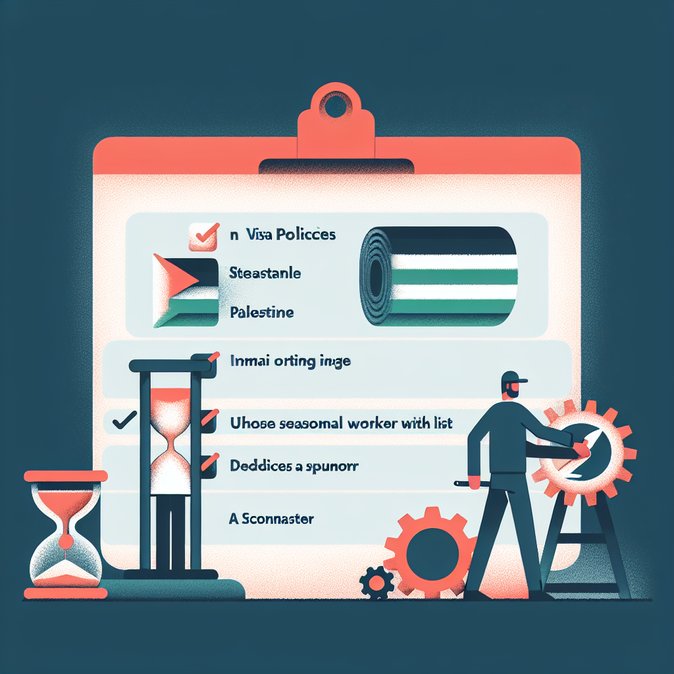
Most provisions of Statement of Changes HC 1333, laid on 14 October 2025, became operational today. Key impacts include: 1) Nationals of Palestine are now ‘visa nationals’, meaning they must obtain a visit visa before travelling to the UK; 2) Seasonal Workers may work no more than six months in any rolling ten-month period (previously 12), shrinking permissible assignment duration by 17%; 3) New settlement concessions for Innovator-Founder route graduates; and 4) Alignment of various Appendix references ahead of January’s B2 English-language uplift for Skilled Worker and Scale-Up routes.
The Palestine re-designation brings UK policy in line with Schengen practice and follows the government’s formal recognition of the Palestinian state last month. Employers in agriculture and food processing—heavy users of the Seasonal Worker route—must now restructure rotas or source additional labour to avoid exceeding the six-month cap.
![Wide-ranging Immigration Rule changes come into force, adding Palestine to visa list and tightening seasonal work limits]()
Legal advisers highlight compliance traps: sponsors must update Certificate of Sponsorship end-dates immediately and monitor ‘cooling-off’ periods. Failure to do so could trigger civil penalties or licence suspension. Visit-visa teams should also update automated triage systems to flag Palestinian passport numbers, or risk inadmissible passengers at UK airports.
For global mobility programmes, the main takeaway is increased planning complexity. Short-term secondments may need to switch from Seasonal Worker to Skilled Worker or Scale-Up routes, raising cost. Meanwhile, talent-attraction teams should note that the High Potential Individual (HPI) visa expansion and prize-list additions took effect last week, widening eligibility but subject to an 8,000-application cap.
The Home Office has promised updated guidance “within 48 hours”, but practitioners report glitches on the Sponsorship Management System, particularly when assigning seasonal certificates. Companies should schedule system downtime and double-check allocations through manual reports until the patches are deployed.
The Palestine re-designation brings UK policy in line with Schengen practice and follows the government’s formal recognition of the Palestinian state last month. Employers in agriculture and food processing—heavy users of the Seasonal Worker route—must now restructure rotas or source additional labour to avoid exceeding the six-month cap.

Legal advisers highlight compliance traps: sponsors must update Certificate of Sponsorship end-dates immediately and monitor ‘cooling-off’ periods. Failure to do so could trigger civil penalties or licence suspension. Visit-visa teams should also update automated triage systems to flag Palestinian passport numbers, or risk inadmissible passengers at UK airports.
For global mobility programmes, the main takeaway is increased planning complexity. Short-term secondments may need to switch from Seasonal Worker to Skilled Worker or Scale-Up routes, raising cost. Meanwhile, talent-attraction teams should note that the High Potential Individual (HPI) visa expansion and prize-list additions took effect last week, widening eligibility but subject to an 8,000-application cap.
The Home Office has promised updated guidance “within 48 hours”, but practitioners report glitches on the Sponsorship Management System, particularly when assigning seasonal certificates. Companies should schedule system downtime and double-check allocations through manual reports until the patches are deployed.


